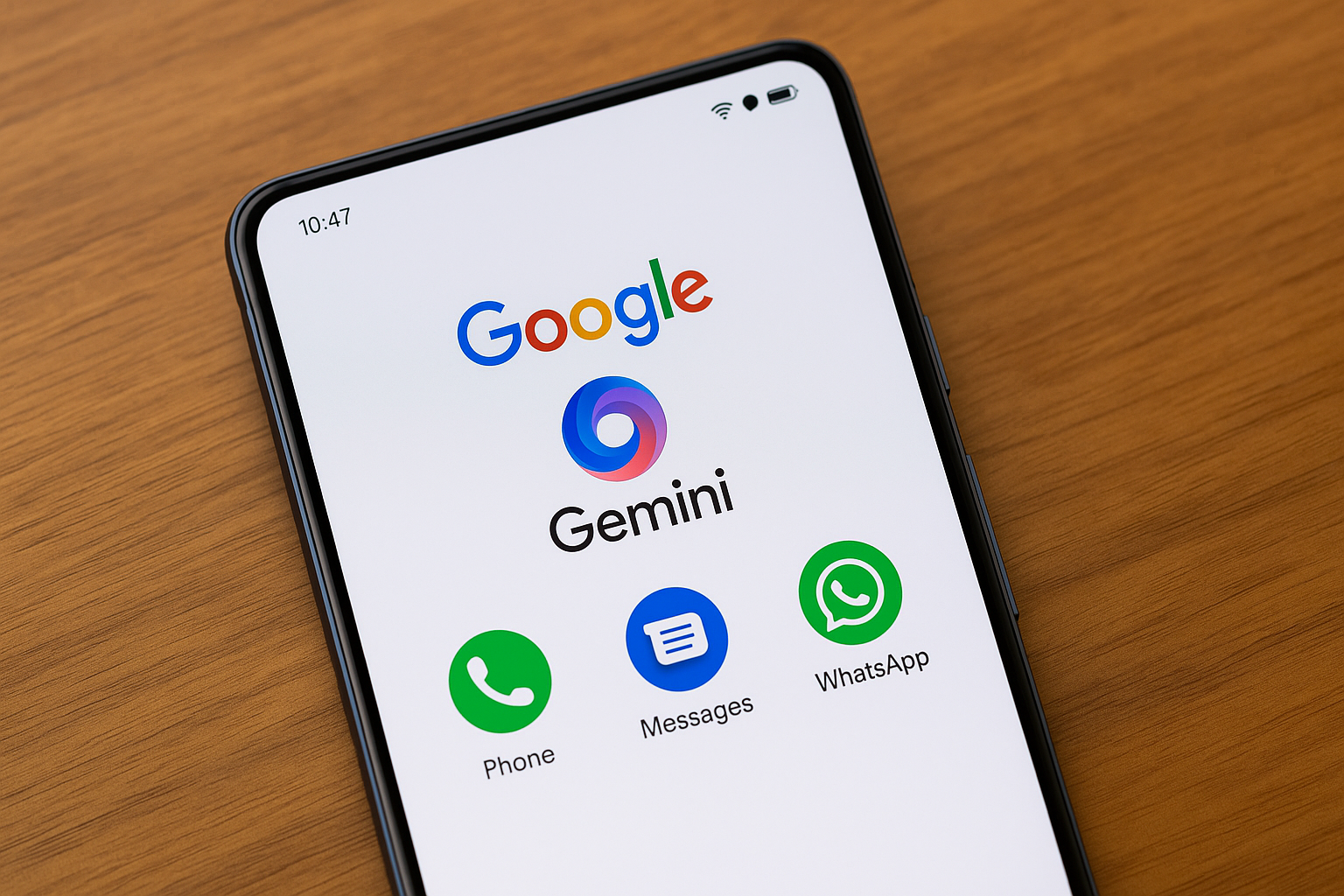
Change rolls out July 7 for all Android users
Google is updating its Gemini AI assistant on Android. From July 7, 2025, Gemini will gain access to essential phone apps — like Phone, Messages, WhatsApp, and Utilities — even if your Gemini Apps Activity setting is disabled.
This means users will get AI-powered help from Gemini without saving their interaction history long-term. But the update is also raising eyebrows over how much access the AI now has to your device.
What’s Changing?
Until now, Gemini extensions required users to turn on Gemini Apps Activity. This setting allowed Google to save your Gemini usage history for better personalization.
Now, Google confirms via email that Gemini will still work with select apps — including communication and system utilities — even if that setting is turned off. You won’t need to manually enable anything. The access comes built-in from July 7.
Why This Raises Privacy Concerns?
While the change allows for more flexible AI use, it also means Gemini can interact with personal apps — like your Phone app and WhatsApp — without actively storing your history.
However, even if you’ve disabled Gemini history, Google says it will still store your activity for up to 72 hours. This is done for “safety, security, and feedback,” according to the company.
That temporary window has drawn concern from privacy advocates, who argue that users may not fully understand what access they’re granting — or for how long.
What Apps Gemini Will Now Access?
The extensions include:
- Phone – for placing calls
- Messages – to read or send text messages
- WhatsApp – to send messages via Gemini
- Utilities – to change settings like brightness or Wi-Fi
These tools make Gemini more useful as a real-time assistant. But because they involve sensitive data, such as conversations and call details, the expanded access is prompting questions about transparency.
What Users Can Do?
Users don’t need to take any action — the update is automatic. However, you may want to review your privacy settings and read Google’s updated support page to understand what Gemini can do on your phone.
If you’re concerned about even short-term data storage, there’s no option to opt out of the 72-hour temporary activity storage — only the long-term history can be disabled.
A Trade-off Between Access and Control
Google is positioning this change as a step toward better usability. But it also reflects a growing trend in AI integration: more control for the assistant, and less visibility for the user.
As Gemini becomes more deeply embedded in Android, the line between helpful and overreaching may continue to blur — unless Google offers clearer controls and transparency.
